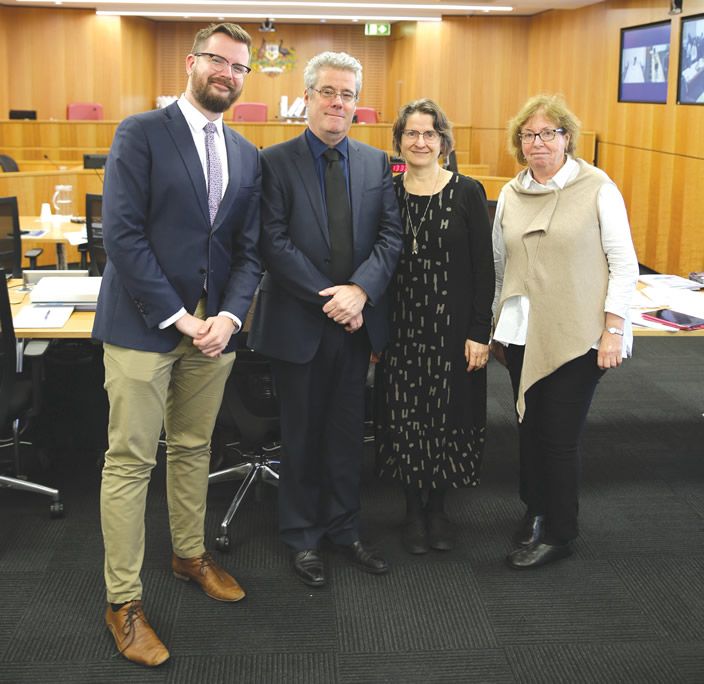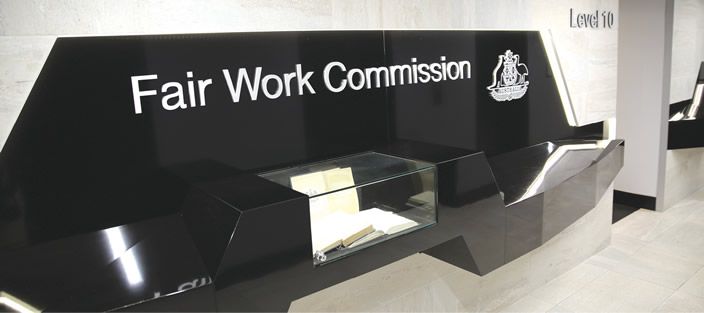Evidence was supplied during the proceedings that early childhood education has been affected by perceptions that lower the perceived value of the work in the eyes of the community.
In particular, perceptions that the work involves caring for children and as such is work that women are ‘inherently’ capable of doing, rather than using complex learnt skills and knowledge.
These gender based views have led to downward pressure on wages leading to early childhood teachers being paid up to 49% less than primary and secondary school teachers.
Outdated award
The award rate for teachers has not moved to reflect increases in work value since at least 1995.
The work environment for teachers has altered significantly over the last 20 years. Rather than the traditional classroom, increasingly teachers are working in open plan classrooms; ‘agile space’ environments, including with multi-age groupings; in self-paced learning environments for students, including where they are using their own devices, with consequent impact on the physical and mental aspects of the work, including an increase on noise, and a higher degree of more difficult supervision required.
To some extent, this has always been present in the early childhood setting. However, these workplaces bring additional challenges of being noisy, chaotic, not in large part equipped for adults in the main classroom areas, and – necessarily – full of very young children who have difficulty controlling emotion and following instructions.
The award contains rates of pay that are considerably below the rates necessary to achieve the modern awards objective of being a fair and relevant safety net.
The vast majority of primary and secondary school teachers in both the government and non government sector are employed under enterprise agreements that provide for rates in excess of those claimed by the IEU.
Opposition from industry
The only opposition to this case has come from the for profit long day care industry, which employs a small fraction of all teachers covered by the award.
The evidence of change from primary and secondary school teachers was uncontested by any employers, and the increases sought were not opposed by those who employ the overwhelming majority of teachers covered by the award, whether in the early childhood education sector or otherwise.
The Australian Childcare Alliance has sought to downplay the extent of changes in work value of early childhood teachers.
However, no application was made arguing that early childhood teachers should have different award rates of pay than other teachers.
The overwhelming evidence demonstrates that a teacher is a teacher, and that the work value of an early childhood teacher is no lower than that of other teachers (noting they have the same qualifications and in most locations a requirement to meet the exact same national teaching standards). The IEU’s position is that the largely uncontested case should lead to substantial increases in the award rates of pay.
Compelling witnesses
During the proceedings before the commission a number of compelling witnesses gave evidence to support the IEU claim.
IEUA NSW/ACT Branch Organiser Lisa James gave extensive evidence on the depth and breadth of early childhood teachers’ work, their requirements to be accredited by NESA by meeting the same teaching standards as school teachers, and the extensive pedagogical requirements of the Early Years Learning Framework, which guides their work.
Witness Kenan Toker, 27, is a software engineer with Langdale Consultants. He took a day off work to attend the commission in support of early childhood teachers.
“I’ve been very happy to give evidence in this case for early childhood teachers,” Toker said.
“I believe my own work as a software engineer is similar in terms of skill and education required and I hope for a positive outcome.”
Witness Jenny Finlay travelled from Queensland to make a statement. Finlay is Teacher/Director at Borilla Community Kindergarten in Emerald, in rural Queensland. She is also the Early Childhood Representative for IEUA-QNT.
Finlay described the complexities and responsibilities of her work at Borilla, which is a large kindergarten servicing 132 children with a range of needs, including low socio-economic background, English as a second language, Aboriginal and Torres Strait Islander background and special needs.
Finlay has worked at the centre for 23 years and said in that time the work has evolved.
“I wanted the Commission to hear the story of what an early childhood teacher actually does; how the work has changed, the complexity of it, the challenges of it and the training it takes to be an early childhood teacher.”
She said risk assessment and risk management were a significant part of her responsibilities.
Former IEUA NSW/ACT Branch Secretary John Quessy said “I am proud that we ran this case, proud that we committed the time, the resources and the money to see it through to the end when there were plenty of times when it looked just too hard and there was temptation to throw it all in – we did not yield to that temptation.”
The Commission’s final decision is expected between December 2019 and April 2020.
Compiled by journalist Sue Osborne










































































































































